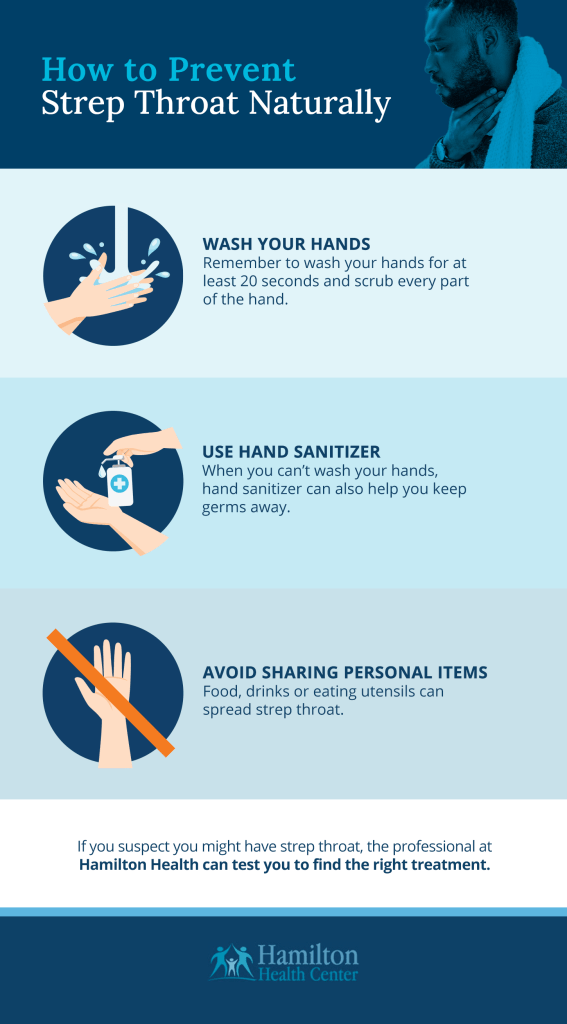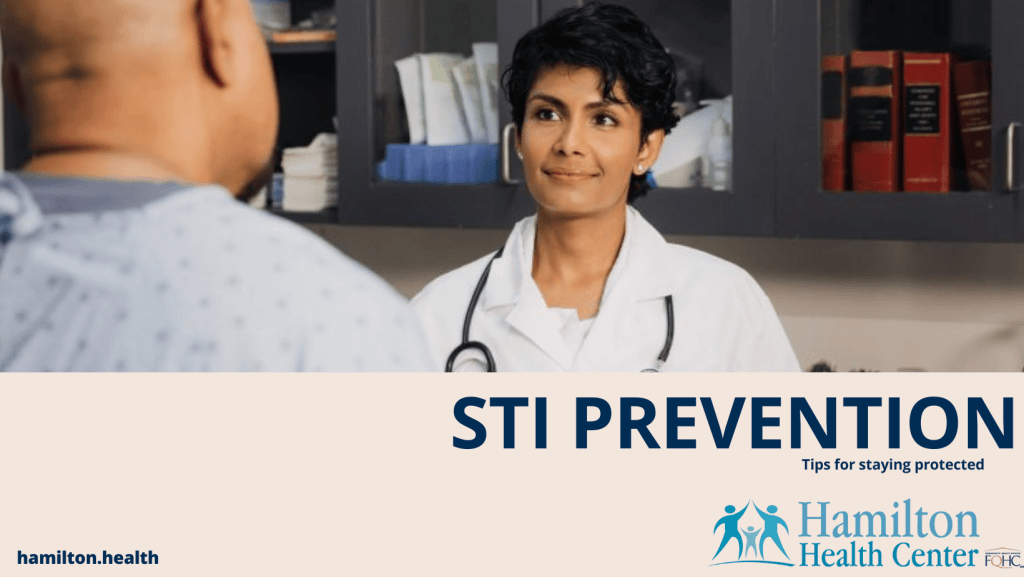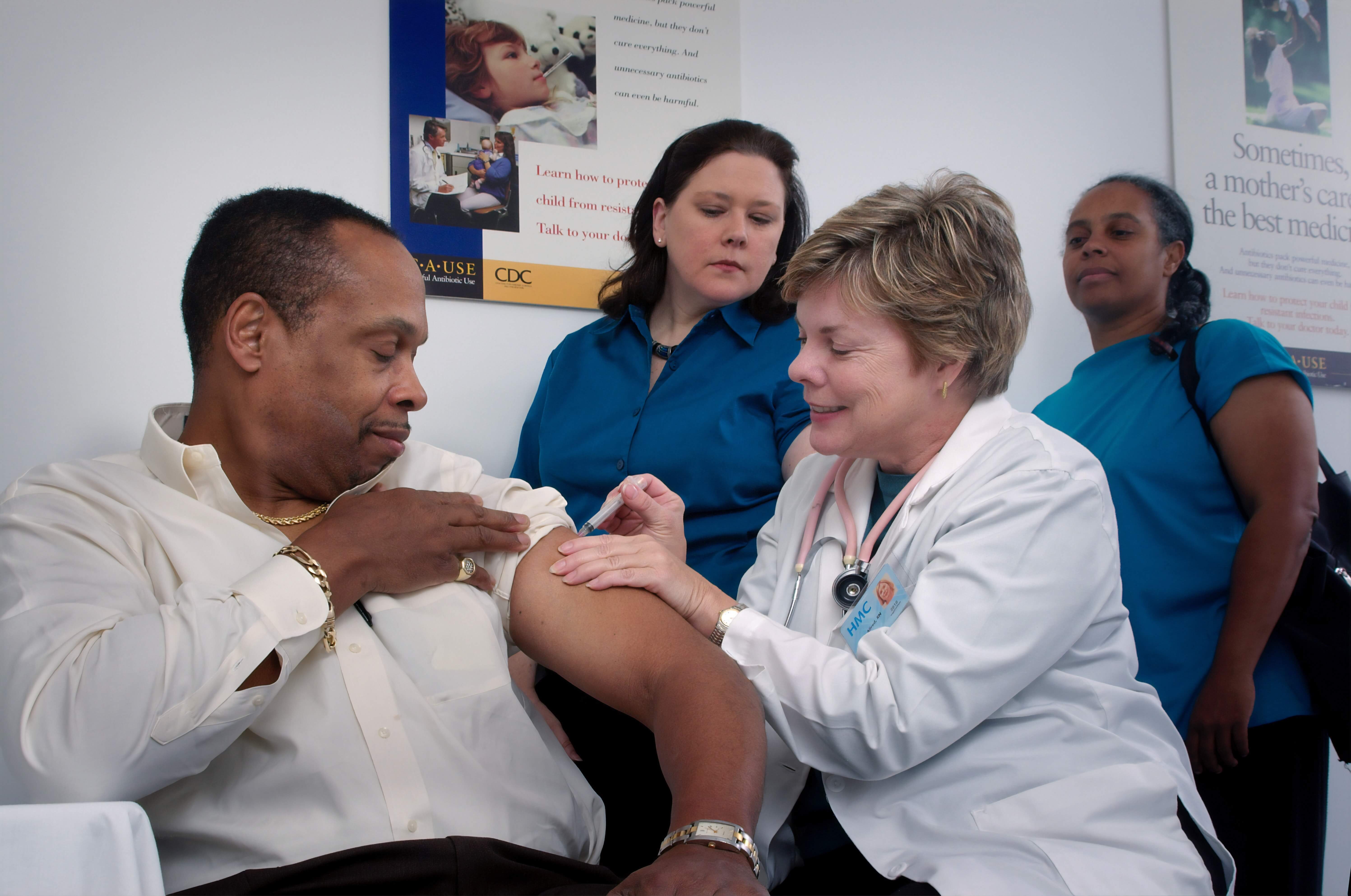Is March Too Late to Get a Flu Shot?
Between busy schedules, work projects and family commitments, it’s easy for things like getting your flu shot to fall through the cracks. Before you know it, you might wake up and realize it’s March — and you never made it to the doctor’s office for your vaccine as you’d planned. Does this mean you missed your opportunity? Not necessarily!
As we’ll explore below, there’s certainly a peak flu season you’ll want to be protected for — but a late or early vaccine is much better than none at all.
When Are You Supposed to Get a Flu Shot?
In the U.S., peak flu season falls between December and February. However, there’s no set timeframe — the flu can start to spread earlier in the fall and last through May. This means there is a lot of fluidity when it comes to the optimal time to get your flu shot.
Generally, experts recommend that you get your flu shot in September or by the end of October. Because the shot takes about two weeks to start effectively protecting you, you’re advised to get a shot as soon as they start becoming available in your community. This typically happens in September.
Don’t forget these top tips:
- You can get a flu shot even if you’ve already had the flu, as this can protect you from other flu strains.
- If you’re above the age of 65 and got your flu shot early, you can ask your doctor about getting a booster if the flu is still going strong late in the season.
- Flu shots are recommended for everybody age six months and older.
3 Reasons to Get a Flu Shot Even If It’s Not Flu Season
Despite the best-laid plans, sometimes the flu season might catch you by surprise or linger much longer than you anticipated. Even if you’ve missed peak flu season, there are still plenty of reasons to get your late flu shot. No matter how early or late, there’s really no bad time to get vaccinated.
The Flu Season Can Fluctuate
While the flu tends to peak around a similar time each year, it’s not an exact science. Strains of influenza can spark up before or after this window, sometimes lasting for longer than expected. It can also vary in intensity from year to year. Some seasons may be abnormally mild while others are particularly aggressive.
While standard recommendations are a good rule of thumb to follow, getting your flu shot later can help protect you from an unpredictable season.
Put Your Health First
The flu has side effects that can range from uncomfortable to downright dangerous. It can cause serious complications that may require medical intervention, including bacterial pneumonia and sinus infections. Serious complications lead to thousands of flu-related deaths each year.
The flu vaccine is one simple and effective way to prevent illness and hospitalization. In fact, according to the CDC, flu vaccines have been shown to reduce the chances of a doctor’s visit by up to 60 percent.
Protect Others Around You
Flu vaccines aren’t just about your own health. Getting a shot, no matter how late in the season, can help protect the people around you. The concept of herd immunity reflects the fact that immunized populations stop the spread of a virus and keep the community safe. Because the flu virus is so easy to spread, it’s crucial to minimize the risk for those around you.
Even if you’re perfectly strong and healthy, you never know what immunocompromised people you might be interacting with every day. A late flu shot can help ensure the flu season dies down quickly without lingering flareups.
Where to Get Your Flu Shot in Harrisburg
Flu vaccines are available in a number of places around Harrisburg, making it easier than ever to find a vaccine. During flu season, you’ll be able to get your shot at most major pharmacies, college health centers, clinics or health departments.
If you’re trying to get a flu shot in March or later, vaccines will not be as widely available but should still be possible to obtain. Ask your doctor’s office about getting a flu vaccine, or use the PA Department of Health Flu Vaccine Finder to identify your closest location.
Contact Us to Learn More About Getting a Flu Vaccine
Hoping to get a flu vaccine late in the season? Need help handling any influenza symptoms? Hamilton Healthcare is here for you. We’re your local health care partner, providing affordable and accessible services to families of all backgrounds. Contact us today to learn more about what we do and how we can help.
Top Tips for Preventing Strep Throat
Strep throat has uncomfortable symptoms such as sore throat, fever and problems breathing or swallowing. The contagious bacteria Streptococcus pyogenes causes strep throat when it spreads to a person without the disease. You can reduce your chance of getting or spreading strep throat by following certain precautions. This guide will teach you how to prevent strep throat and what to do if you have it.

How to Prevent Strep Throat Naturally
Try the following strategies to reduce your family’s risk of getting strep throat:
- Wash your hands: Hand washing serves as one the best ways to prevent infections like strep throat. Remember to wash your hands for at least 20 seconds and scrub every part of the hand.
- Use hand sanitizer: When you don’t have access to soap and water, hand sanitizer can also help you keep germs away. Hand sanitizer often comes in travel-sized bottles that you can take anywhere.
- Avoid sharing personal items: Sharing food, drinks or eating utensils can spread strep throat bacteria even when neither person thinks they have it. Other items that go in the mouth like toothbrushes and pacifiers can also spread germs.
You can lower you or your child’s chance of getting strep throat by limiting your exposure to the Streptococcus pyogenes bacteria. Following these tips can help you avoid spreading strep throat and other infections at any time of the year.
Preventing the Spread of Strep Throat
If you or someone you love already has strep throat, you can take steps to avoid spreading it. You can protect others by:
- Taking antibiotics: If you get a strep throat diagnosis, your doctor will likely give you antibiotics to fight the infection. Remember that strep throat’s contagious period lasts for at least 24 hours after you start taking antibiotics.
- Keeping your environment clean: Surfaces like tabletops and doorknobs can host strep throat bacteria. Regularly wipe down these areas to prevent the spread of bacteria.
- Staying home from work or school: A person with strep throat stays contagious as long as they have symptoms. If you can, call in sick from work or school until you’ve taken antibiotics for at least 24 hours.
- Washing your hands frequently: Keeping your hands clean will reduce the spread of the strep throat bacteria. Follow the same directions as mentioned above for the best results.
Everyone has a part to play in reducing strep throat’s spread, including people who already have it.
How to Prevent Strep Throat When You Feel It Coming
Symptoms like a sore throat that lasts longer than 48 hours and small spots inside your mouth can both indicate strep throat. If these symptoms show up, you may already have the infection. Visit a doctor to get a rapid strep test and throat culture that can tell you if you have strep throat. The professionals at Hamilton Health can test you for strep throat and provide the right treatment.
Get Strep Throat Diagnosis and Treatment at Hamilton Health
At Hamilton Health, we offer patient-centered care to people regardless of health, economic or insurance status. To see a doctor for strep throat or another infection, call us at 717-232-9971 to schedule an appointment.
STI Prevention Tips
Advice For Avoiding STIs

The prevention and control of sexually transmitted diseases is critical for sexually active people. The best way to prevent a sexually transmitted infection (STI) is to abstain from all sexual activity— but that’s not practical for most people. So, we will give you proven STI and STD prevention tips that’ll help you enjoy an active sex life without the health risks.
Communicate Openly With Your Partner
Many young adults avoid talking about sex at the beginning of a relationship, but it’s vital to talk about it if you want to prevent STIs.
Speak with your partner openly about sexual health and STIs before you engage in sexual activities. Practicing open communication about sex enhances trust and mutual respect. Be sure to talk to your doctor about your sexual practices.
Use Condoms
Use condoms correctly each time you have sex — and particularly casual sex. Condoms may not have a 100% guarantee against infection or pregnancy, but they’re quite effective when used correctly. Remember to:
- Make sure the condom hasn’t expired
- Use only water-based lubricants to avoid damaging the condom
- Always leave enough room at the tip of the condom
- Don’t reuse a condom or remove it and wear it again
Abstain From Sex When You Think a Partner Has an STI
Always avoid sexual contact with anyone who has a discharge, rash, genital sores or any symptoms of an STI. It’s best practice to:
- Let you or your partner see a doctor and get treated before you resume sexual activity
- Follow all the instructions of your physician
- Always use a condom if you’re having sex with a new partner
- Let your doctor give you or your partner an all-clear report before you start having sex again
Avoid Using Recreational Drugs and Alcohol
Getting stoned or drunk can increase your risk of contracting STIs. When you’re intoxicated, you won’t be able to exercise the judgment required to practice safe sex.
Abstaining from recreational drug use can cut your risk of being coerced to have unsafe sex. The use of recreational drugs in public places like nightclubs can easily get you to act against the good decisions you made earlier on. If you must use recreational drugs like marijuana, you should do so at home where the cerebral euphoria can wear off without making any regrettable decisions.
Practice Mutual Monogamy
Do your best to stick with just one sexual partner. The only way to have unprotected sex and remain safe from infections like syphilis, gonorrhea, HIV and chlamydia is for you and your partner to abstain from having sex with other partners. This is called mutual monogamy.
Staying faithful to just one partner will limit your exposure to STIs. The risk of STIs will be very minimal if one or both of you has not had sexual contact with another person.
When one person has had sexual contact with someone else, both of you should get tested for STIs before any sexual contact. Let your healthcare provider know how long ago you or your partner had sexual contact with another person.
Get an STD Prevention Education With Hamilton Health
Hamilton Health provides STD prevention education for a wide variety of patient groups including low-income earners. We’re committed to helping you enjoy good health while you’re sexually active.
Call us at (717) 232-9971 to book an appointment with one of our caring and compassionate healthcare providers today.
View More STD Resources
Common Signs of Hernias

Hernias are a common medical concern among adults. They do not always have an obvious physical cause. Hernias become more of a health risk factor with age, but anyone can experience the discomfort of these medical complications.
What is a Hernia?
Hernias occur suddenly or over time, where there is a weakness or opening in the abdominal muscular wall. This area is called the peritoneum, and its main purpose is to keep abdominal organs in place. When a hole or weakness exists in the abdominal wall muscles, organs and tissues can push forward and create an uncomfortable bulge.
Hernias are simple for doctors to diagnose, but there are a few different types.
What Are The Different Types of Hernias?
Hernias sites are typically found across the groin, stomach, belly button or on an abdominal surgical scar. They are identified through the following categories:
- Inguinal hernia: These are the most commonly diagnosed hernias, and they are a result of the intestines pushing through the muscle abdominal wall. The intestines usually push through the inguinal canal found within the groin.
- Hiatal hernia: These hernias are a result of part of your stomach pushing up through your diaphragm. These occur frequently in adults over 50 years old and can have impacts on your bowel movement.
- Umbilical hernia: A hernia taking place when a baby is under six months old. These are noticeable near the lower stomach, but they happen when the intestines stick out through the abdomen wall. This hernia corrects itself as the child grows older and muscles strengthen.
- Incisional hernia: This hernia complication happens after abdominal surgery. The intestines push past weak muscles, scarring or tissue.
How Do You Know if You Have a Hernia?
You can usually tell if you have a hernia if a bulge is coming from your abdominal area. These bulges are easier to find when you are standing or bending as opposed to lying down flat. Inspecting your body for hernias is done by feeling your abdominal muscles for any lumps that don’t match the opposite side.
There are a few other hernia symptoms. Other common symptoms of a hernia include:
- Pain or aches in the abdomen
- Nausea
- Vomiting
- Heartburn
- Straining when using the restroom
Signs of Hernia for Women

While women are less likely to experience hernias than men, they are still at risk. If a hernia occurs in a woman, it is often smaller and deeper and doesn’t have the typical bulge. In most cases, these hernias cause chronic, deep pain in the pelvis accompanied by an occasional stabbing feeling that seems to occur suddenly and continues to linger.
Exercising, coughing, laughing or straining in any way can also cause hernia pain to increase. While it may be hard to find the exact words to describe signs of a hernia in a woman, some common phrases include:
- Shooting
- Sharp
- Aching
- Burning
- Dull
Most women experience inguinal hernia pain near their groin and report more severe symptoms during their period. Their hernia can also worsen through activities that put additional pressure on the pelvic floor, like:
- Bending
- Entering and exiting a car
- Sitting and standing for a prolonged period
Signs of Hernia for Men
Hernias in men are often closer to the surface and have apparent swelling. However, the exact signs will largely depend on the type of hernia and where it is in the body. For incisional, umbilical, femoral and inguinal hernias, some symptoms include:
- Swelling beneath the abdomen and groin that disappears when you lie down
- A heavy feeling in the stomach with accompanying constipation or bloody stool
- Discomfort in the abdomen whenever you lift something or bend over
- A burning sensation in the swollen areas
- Heartburn
- Groin weakness or pressure
- Shooting pains
- Vomiting
- Constipation
For a hiatal hernia, a man may experience symptoms like heartburn or pain in the upper abdominal area. The signs and symptoms of a hernia may also differ if it is a strangulated hernia and can include the following:
- Nausea
- Fever
- Sudden pain that quickly increases
- A swollen bulge that becomes red or purple
- Extreme constipation
When Should I Worry About Hernia Pain?
The best tip with hernias is to watch them regularly. If pain levels become excruciating and prevent you from living a normal life, surgery might be your best option. Depending on the location and type of hernia, you might need open or Laparoscopic repair surgery.
Open surgery involves sealing off the hernia using mesh or bone while Laparoscopic repair requires smaller incisions for a shorter recovery period. Both methods repair a hernia in the same way, but Laparoscopic repair uses a small camera to guide instruments and lighting through the abdomen. Talk to your doctor to discuss these treatment options in more detail.
Are You at Risk?
It’s always proactive to monitor your body and health. Your risk factors of a hernia increase if you have a family history of hernias, are overweight, experience long-term constipation or smoke. If you are concerned about hernias or think you might have one, Hamilton Health Center is here to help.
By making an appointment with Hamilton Health Center, we can guide you on the best path toward overall well-being. Welcome to your new home for health. Call Hamilton Health Center today.



